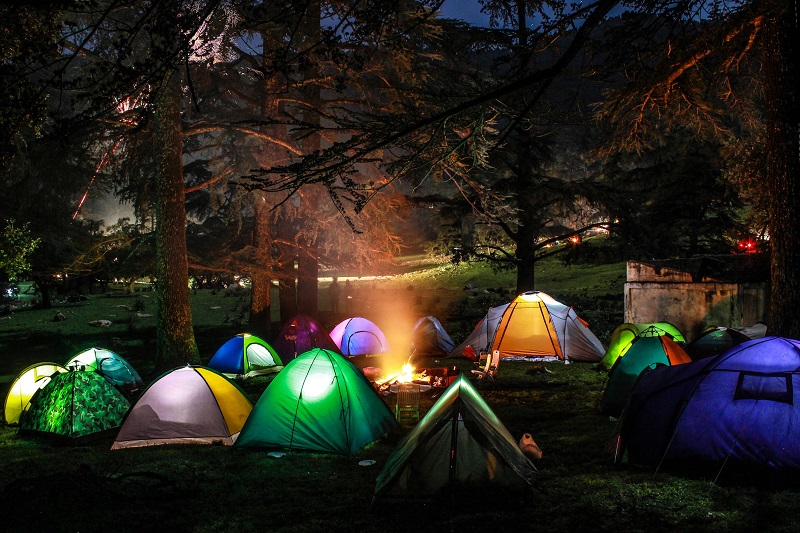
Proven tips on how to survive camping, irrespective of the weather
With the school holidays and the festival season approaching, it’s time for the tents to be out. But with heatwaves and storms forecast, is it actually possible to prepare for all the conditions? Hear from the experts.
Uncomfortable Heatwaves
While a lot of people prefer sunshine, camping in a heatwave can be no less than a health risk. According to David Scotland, the owner of Outdoor World Direct, campers should avoid taking naps in the tent during the daytime as it could lure in heatstroke in no time.
To ensure a comfortable sleep, Max Schmidt from CamperDays suggests investing in a cooling mat. He says a gel inside the mat gets activated every time motion, body pressure and weight are applied, absorbing body heat and reducing body temperature.
Keep Reading
Thomas Drake, the founder of CampStead, also has some suggestions to make. He advises pitching in a spot that is shaded from the midday sun. And for hot nights, if someone wants to sleep with the tent open, he recommends getting a net attachment. Drake also talks of a cool box.
Sudden Precipitation
Rain will potentially not ruin your camping trip if you are well prepared. Scotland recommends a tent with a minimum of 3,000 mm hydrostatic head value or a 5,000 mm one to prevent leaks.
Additionally, he vouches for a footprint, which adds an extra layer of protection from the wet ground, and a carpet to get insulation and a feeling of homeliness.
Some experts, including Scotland, recommend getting tents with a porch or pre-attached awning for a covered seating area ideal for wet conditions. In the absence of a porch, even tarps can help. They offer shelter, are inexpensive and can be erected easily.
Unseasonable Cold Snaps
During the cooler months, experts recommend focusing on the pitch location to have a cosy night as a tent set up in a convenient spot would keep at bay any cold breezes that may sweep through the campsite. Your campfire’s life also depends on the pitch location.
Drake advises packing lots of layers to maintain heat and avoid sweating. He says hand warmers can be used to heat sleeping bags, while stressing the need to collect plenty of firewood to start your campfire and maintain it.



